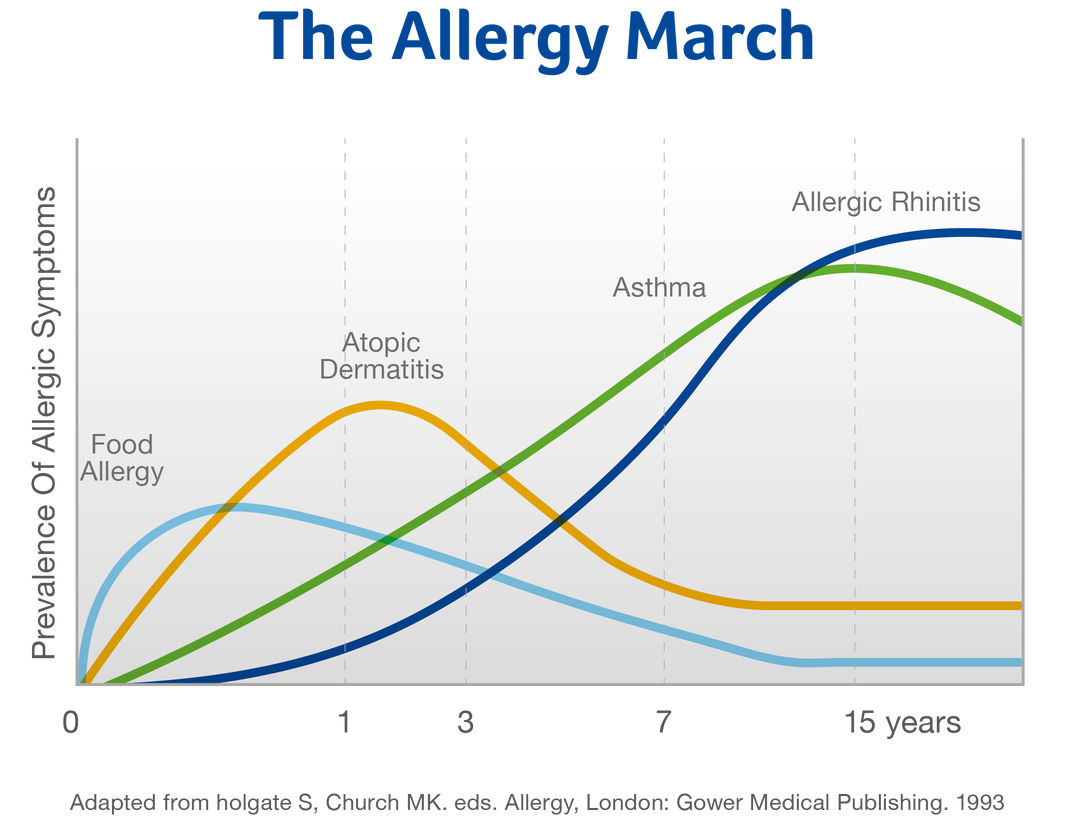Breastmilk is the best for babies. The World Health Organisation recommends exclusive breastfeeding for the first six months of life. Unnecessary introduction of bottle feeding or other food and drinks will have a negative impact on breastfeeding. After six months of age, infants should receive age-appropriate foods while breastfeeding continues for up to two years of age or beyond. Consult your doctor before deciding to use infant formula or if you have difficulty breastfeeding.
In Singapore, 1 in 5 children is suffering from some form of allergy1, with cow’s milk being one of the most common food allergens.
Infants with allergy may have sleep disturbances and problems at meal-times, which will negatively impact the quality of family life. In addition, once a child has an allergy in the first years of life, he/she could go on to develop other allergic conditions, and this is known as The Allergic March.

Allergy can have significant impacts on your child’s physical, social, financial and psychological well-being in adulthood2-8. Therefore, minimizing the risks in early life is important.
A healthy immune system is important in protecting your child against infections and allergies. If you are concerned about your child being at risk of cow’s milk protein allergy, it may be time to consider a hypoallergenic milk formula. The World Allergy Organization (WAO) 2016 guideline recommends prebiotic supplementation for the prevention of allergy in not exclusively breastfed infants9. Consult your healthcare professional on how you can reduce your child’s risk of allergy.
Join our AptaAdvantage Club today to enjoy:
- Educational content to support you on your motherhood journey
- Various complimentary classes and exclusive discounts with our key enrichment partners
Kickstart your AptaAdvantage experience by signing up HERE.
- Tan T, Lim D, Lee BW, Van Bever H. Prevalence of allergy-related symptoms in Singaporean children in the second year of life. Pediatr Allergy Immunol. 2005;16:151-156
- Pawankar R et al. WAO, White Book on Allergy. Update 2013:5-55
- Prescott SL. J. Allergy Clin Immunol. 2013;131(1):23-30
- West CE et al. J Allergy Clin Immunol. 2015;135(1):3-13
- Silverberg JI. J Allergy Clin Immunol. 2016;137(3):938-940e1
- Gupta R et al. JAMA Pediatr. 2013;167(11):1026-31
- Patel DA et al. J Allergy Clin Immunol. 2011;128(1):110-115e
- Dalgard FJ et al. J of Inv Dermatol. 2015;135:984-991
- Cuello-Garcia et al. World Allergy Organization Journal. 2016;9:10
Related articles

Connect with our team of experts
We provide advice and support for you on your parenthood journey




